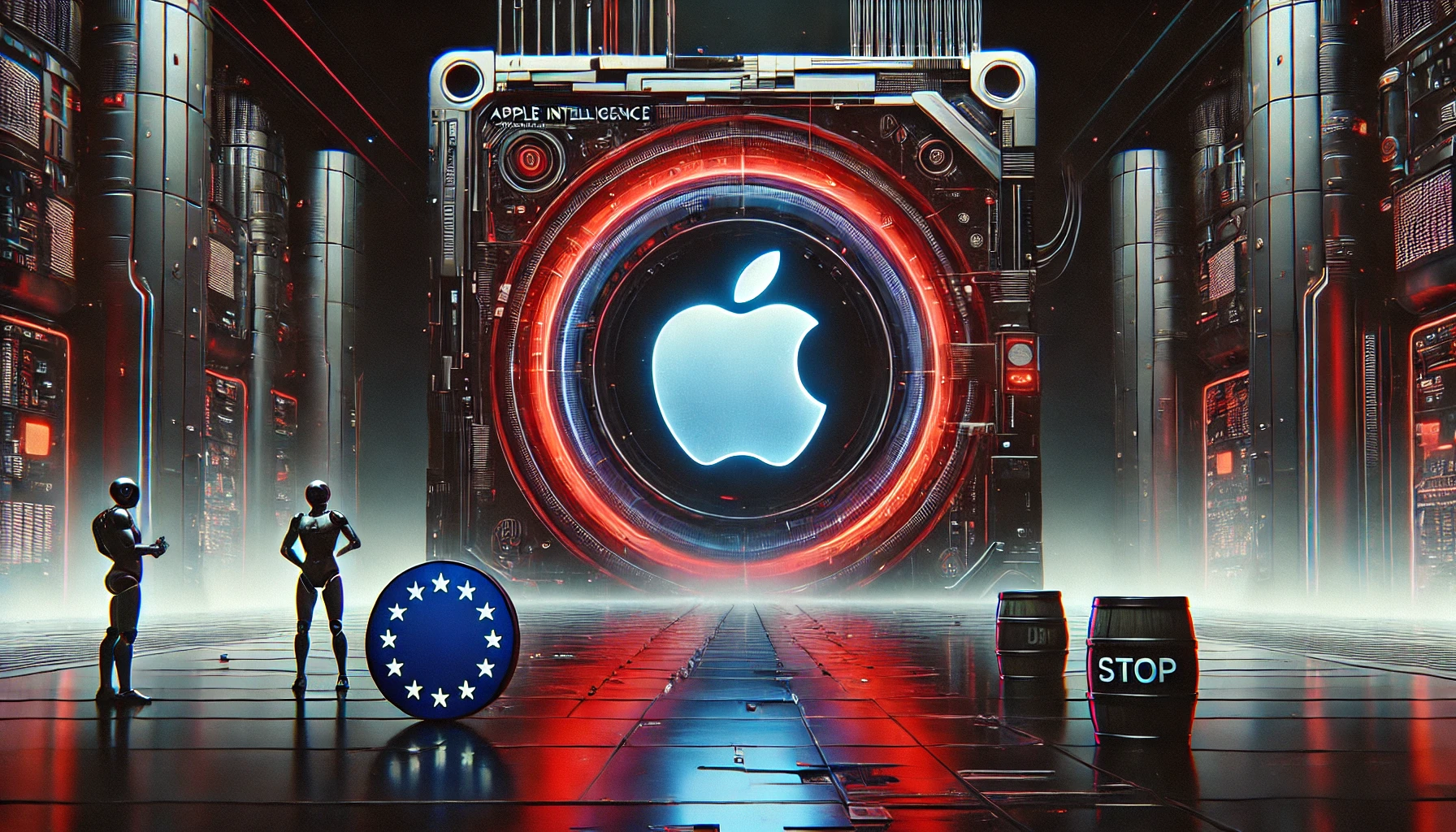Rollout of Apple’s “Apple Intelligence” suite is delayed by the EU
Apple’s Worldwide Developers Conference (WWDC) introduced “Apple Intelligence,” a suite of AI features designed to transform the iPhone experience. At the core of Apple Intelligence lies a lightweight but powerful AI model with three billion parameters. While this is dwarfed by current language models, which approach trillions of parameters, Apple’s AI model operates directly on the iPhone for low-latency, private data processing. Simultaneously, ChatGPT will handle more complex tasks on through Apple’s surprise partnership with OpenAI. One of Apple Intelligence’s standout features is its ability to rewrite emails and messages, adapting responses to the user’s unique style and tone. It The post Rollout of Apple’s “Apple Intelligence” suite is delayed by the EU appeared first on DailyAI.

Apple’s Worldwide Developers Conference (WWDC) introduced “Apple Intelligence,” a suite of AI features designed to transform the iPhone experience.
At the core of Apple Intelligence lies a lightweight but powerful AI model with three billion parameters.
While this is dwarfed by current language models, which approach trillions of parameters, Apple’s AI model operates directly on the iPhone for low-latency, private data processing.
Simultaneously, ChatGPT will handle more complex tasks on through Apple’s surprise partnership with OpenAI.
One of Apple Intelligence’s standout features is its ability to rewrite emails and messages, adapting responses to the user’s unique style and tone.
It can even summarize lengthy group chats and prioritize notifications based on user habits.
These AI systems also serve to upgrade Siri, which can now engage in more natural, context-aware conversations, understanding requests associated with data on the device.
So, for example, if someone sends you a song, you could say something like, “Siri, play that song my friend sent me the other day.” Or how about, “Siri, tell me about the assigment my boss sent me yesterday.”
The era of the ‘AI device’ is already upon us, with Google, Samsung, and others working to make various AI features available to everyone.
However, Apple’s attempt seems to penetrate further into how we use our devices, and, by extension, our data.
When Apple and OpenAI announced their partnership, Elon Musk was among the first to highlight how OpenAI could profit from this partnership.
— Elon Musk (@elonmusk) June 10, 2024
Apple and OpenAI were quick to assert this wouldn’t be the case, with OpenAI stating, “Privacy protections are built in when accessing ChatGPT within Siri and Writing Tools—requests are not stored by OpenAI, and users’ IP addresses are obscured.”
EU delay and regulatory concerns
Apple later announced that at least three key AI features in their AI rollout – Phone Mirroring, SharePlay Screen Sharing enhancements, and the overarching Apple Intelligence – will be withheld from European Union users until 2025.
This stems from concerns over the EU’s Digital Markets Act (DMA), which aims to promote fair competition and interoperability among digital platforms.
In essence, the DMA requires large tech companies like Apple to ensure their products work well with their competitors. Apple is worried that making its AI features compatible with rival platforms could risk the security of user data.
Apple released a statement pledging to collaborate with the European Commission to find a solution that allows them to roll out their new tools to EU customers without compromising their safety.
EU: acting fairly or a glutton for punishment?
Apple isn’t the only tech company that has clashed with the EU lately.
Meta recently canceled the launch of Meta AI in Europe after facing objections from EU regulators and privacy advocates over its plan to train AI models with user data from Facebook and Instagram.
Meta intended to update its terms of service to allow the use of EU users’ social media posts for training purposes, but that was met with a swift backlash.
In response, Meta backed down, stating that it would not use EU social media posts to train its AI models and, like Apple, delay the launch of their new products.
Meta’s statement read, “We’d only be able to offer people a second-rate experience. This means we aren’t able to launch Meta AI in Europe at the moment.”
On the one hand, the EU is strongly committed to safeguarding citizens and keeping big tech in check. On the other hand, there are legitimate concerns that the EU’s regulatory zeal could backfire.
We’re now seeing evidence that AI tools are materially harder to bring to market in the EU, and companies may seek greener pastures in regions with more accommodating rules.
Does that matter? It depends on your view. Right now, thriving companies like France’s Mistral are bolstering Europe’s voice in the generative AI industry.
It’s hard to envisage anyone being too displeased about not having their social media data consumed by Meta or waiting a few months for Apple Intelligence.
Indeed, EU customers are already used to tech hitting the continent long after the US, with the year-old Apple Vision Pro due for release later in June.
Nonetheless, the impending AI Act will pose yet another obstacle for tech companies to negotiate – and it’s already looking a bit tricky.
The post Rollout of Apple’s “Apple Intelligence” suite is delayed by the EU appeared first on DailyAI.























